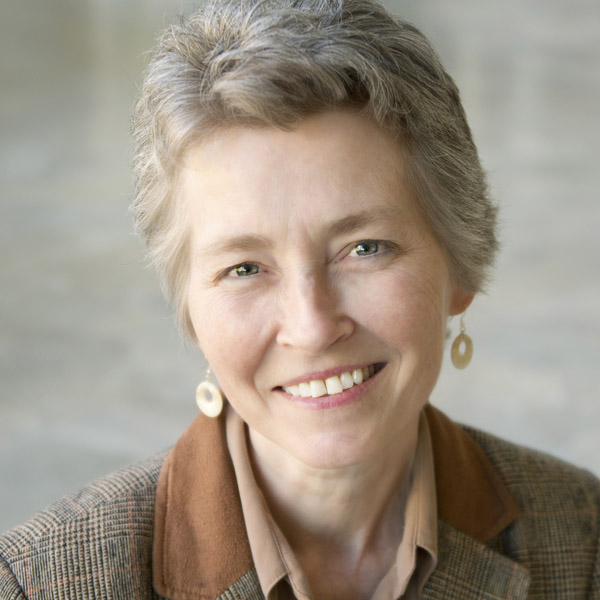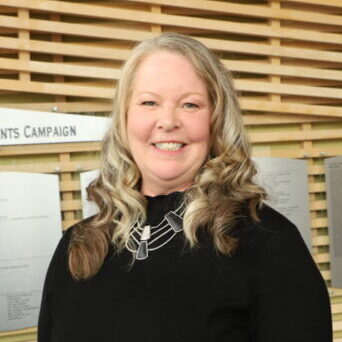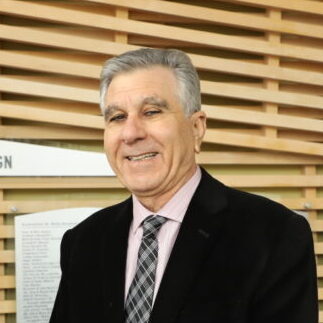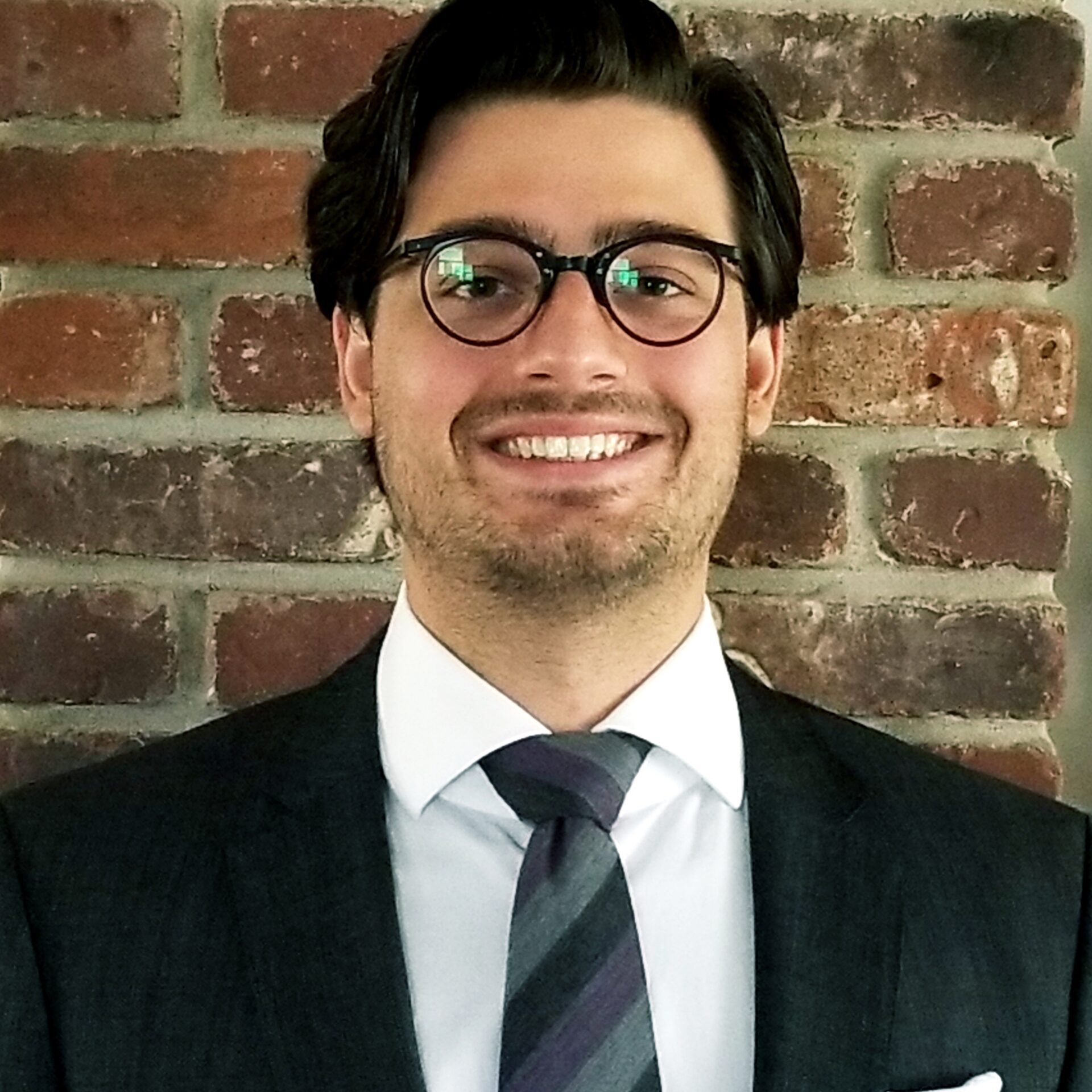Responsibility-Centered Budget Model Initiatives
The Academic Strategic Initiatives Fund (ASI) and the Special Mission Calls to Action Fund (SMCTA) were established as integral components of Algoma University's Responsibility-Centered Budget Model.
Submissions to both funds underwent rigorous evaluation by a multi-disciplinary review committee, ensuring alignment with Algoma University’s Special Mission and Strategic Plan. With 43 proposals received, surpassing available funding, priority was given to proposals demonstrating the highest strategic alignment, measurable impact, effective risk mitigation, and a sustainability plan.
Ultimately, 30 proposals were awarded full or partial funding. Projects and funding awarded cover a two year period beginning May 1, 2024 and ending April 30th, 2026. For the SMCTA, particular emphasis was placed on alignment with the University’s EDI Strategy and Action Plan and the commitment to responding to the 94 Calls to Action.
Unsuccessful submissions can receive a debrief of their review and refine their proposals for resubmission in the next cycle. These initiatives reflect Algoma University’s dedication to fostering innovation, inclusivity, and positive societal change within our community and beyond.
Review Committee
The Review Committee is comprised of representation from all Faculties, a representative of the EDI/Inidenous Community and a member of Finance.
Initiatives
Faculty of Business & Economics (FoBE)
FoBe took a leadership role on the national stage organizing a symposium titled “The State of Indigenization and Decolonization in Canadian Business Schools” in 2023. In collaboration with other Canadian business schools the symposium served to initiate a conversation on the state of efforts to decolonize and indigenize human resource management and accounting programs offered by Canadian Business Schools.
Working closely with Indigenous partners, The Symposium on Topics of Indigenization of Business Schools purpose is to share experience in developing the Indigenous specialization of a Master’s program. The symposium will facilitate the development of partnerships with the scholars in this field to advance research and teaching innovations.
| Lead | Mahbubul Alam |
| Co-lead | Jody Rebek/Jo-Anne Ryan/Ahmed Aziz |
| Fund | SMCTA |
| Amount Awarded | $48,400 |
Faculty of Business & Economics (FoBE)
Located in the nexus of the upper Great Lakes, we connect to 20% of the planet’s freshwater. Engaging our local community is critical to co-creating actions to rehabilitate our freshwater. This transdisciplinary community-based participatory research aims to investigate challenges and opportunities of freshwater health, along with social, economic, and cultural skills. The intention of this initiative is to strengthen intersectoral relationships between First Nations, educators, scientists, climate action groups, etc., in forming a freshwater blue economy strategy locally to address Truth and Reconciliation Calls for Action, while also collaborating with international partners. An Indigenous community-based approach would engage ALL peoples and participants in dialogues intended to co-create collective actions to form the basis for crafting a blue economy strategy from an Indigenous worldview with input from Western science and community perspectives.
| Lead | Jody Rebek/Ahmed Aziz |
| Fund | SMCTA |
| Amount Awarded | $260,000 |
Faculty of Business & Economics (FoBE)
The Faculty of Business and Economics is making a noted mission to include more Indigenous case studies in our curriculum thereby advancing Algoma University’s special mission. The first priority in this initiative is to provide training to faculty members to teach case studies and specifically Indigenous case studies as there is a lack of Indigenous case studies that can be used within an undergraduate and graduate business curriculum and even fewer case studies with a Northern setting. Secondly, the initiative will serve to allow faculty members to engage the Indigenous business communities in Sault Ste. Marie and Brampton in dialogue to foster relationships with both profit and non-profit organizations with the intent of developing rich Indigenous business cases for the classroom.
| Lead | Jo-Anne Ryan |
| Fund | SMCTA |
| Amount Awarded | $173,500 |
Faculty of Business & Economics (FoBE)
FoBe took a leadership role on the national stage organizing a symposium titled “The State of Indigenization and Decolonization in Canadian Business Schools” in 2023. In collaboration with other Canadian business schools the symposium served to initiate a conversation on the state of efforts to decolonize and indigenize human resource management and accounting programs offered by Canadian Business Schools.
The Symposium on Topics of Indigenization of Business Schools purpose is to share experience in developing the Indigenous specialization of a Master’s program. Working with our Indigineous partners, the symposium will facilitate the development of partnerships with the scholars in this field to advance research and teaching innovations.
| Lead | Jody Rebek |
| Co-lead | James White |
| Fund | SMCTA |
| Amount Awarded | $348,586 |
Faculty of Business & Economics (FoBE)
Movement, whether across borders or within them, has long served as a vital strategy for sustaining livelihoods and managing risks. Research indicates that by the year 2050, up to 150 million people could relocate due to environmental and climate-related challenges. This study seeks to examine the imperative for rigorous, evidence-based research to deepen our understanding of human mobility dynamics within the context of the climate crisis.
| Lead | Nusrate Aziz |
| Fund | ASI |
| Amount Awarded | $81,036 |
Faculty of Business & Economics (FoBE)
This project delves into the complex dynamics of climate risk, environmental policies, and international capital allocation. It seeks to understand how climate risk affects the responses of international investors and how government actions interact with the evolving landscape of climate risk. By exploring the relationship between policy interventions and climate risk, the project offers a thorough analysis of their collective impact on global capital flow. Through addressing these pivotal factors, the project endeavors to offer valuable insights into the determinants of international capital allocation in an era characterized by climate considerations and changing regulatory paradigms.
| Lead | Nusrate Aziz |
| Co-lead | Robert Xu/Zi Yang |
| Fund | ASI |
| Amount Awarded | $117,957 |
Faculty of Business & Economics (FoBE)
In an era dominated by data-driven decision-making, the DeScide Research Lab aims to cultivate a dynamic hub for research in the realms of Decision Sciences, Data Analytics, and Empirical analysis. The lab’s scope extends across these fields, recognizing their interrelation in enabling data-driven analysis and informed decision-making. Applications can include various topics and fields, which can span from refining business strategies to optimizing operations & logistics to analyzing diverse population data to shaping and evaluating economic, healthcare, and financial policies that drive societal progress. The initiative supports the hiring of two highly qualified postdoctoral researchers, who will work alongside Algoma University research assistants to ensure the quality of the research work while enhancing community outreach, engagement, and exposure to research.
| Lead | Abou Kasm Omar/Ahmed Aziz |
| Fund | ASI |
| Amount Awarded | $313,500 |
Faculty of Business & Economics (FoBE)/Humanities &Social Sciences-Cross Culturals Studies (HSS-CCS)
First introduced over a decade ago, this research project tracked the rates of injury of young workers and related causes. At the time it was found that workplace culture had a significant impact on the rate of injury occurrence and that in order to change this, elements of the culture would have to change. Reopening this research to now include psychological health and safety, research will focus on real life experiences of our students both in working as Research Assistants and Research participants. An important part of the project will be to increase the knowledge that young workers have of their rights, roles, and responsibilities within the workforce with the goal of decreasing their vulnerabilities.
| Lead | Cathy Denomme |
| Co-lead | Deb Woodman |
| Fund | ASI |
| Amount Awarded | $106,800 |
Faculty of Business & Economics (FoBE)/Science
The Esports Certificate and Specialization within the Bachelor of Business Administration program at the Faculty of Business and Economics (FoBE) offer 10 courses. A newly established Algoma Unity Centre of Excellence serves as a hub for AI, VR, and AR research, necessitating a specialized lab with high-end equipment. This lab presents opportunities for collaborative projects between Business and Computer Science faculty and students, potentially leading to double degrees or interdisciplinary master’s degrees in Esports and Gaming design. Moreover, the lab will enhance the institution’s reputation by hosting community events, attracting IT companies, and fostering research and co-op opportunities in gaming, VR, and AR. It will also support internationalization efforts and domestic partnerships with colleges offering Esports and computer science programs.
| Lead | Simon Xu |
| Co-lead | Cathy Denomme/Aaron Gordon/Miguel Garcia-Ruiz |
| Fund | Capital/ASI |
| Amount Awarded | Total: $466,768 (Capital: $85,801 | ASI: $380,967) |
Faculty of Business & Economics (FoBE)/Science
The increasing mental health challenges among young people, worsened by support barriers, especially for those in rural areas or with financial limitations, require urgent attention. Factors like the pandemic and eco-anxiety intensify stress levels among students, heightening mental health risks (World Health Organization, 2022; Centre for Suicide Prevention, 2022). To address these challenges, the Building Relationships through Inner Development, Growth, & Education (BRIDGE) Lab offers scholarship opportunities to students that uplift individuals, communities, and the environment. The BRIDGE Lab is transdisciplinary and community-focused. Student-led projects focus on contemporary issues such as mental health and planetary well-being by applying knowledge and research from both business and psychology. The lab promotes student engagement and well-being through intrapersonal development, student-led research, and community outreach. We encourage the implementation of evidence-based approaches globally and locally.
| Lead | Jody Rebek/Teryn Bruni |
| Fund | Capital/ASI |
| Amount Awarded | Total: $383,760 (Capital: $83,671 | ASI: $300,089) |
Faculty of Business & Economics (FoBE)/Science
Concerns about the economic impact of immigration, including fears of immigrants “stealing jobs,” driving down wages and increasing pressure on public spending, have shaped public perceptions towards immigrants. However, such perceptions of immigration may be completely disconnected from the actual effects of immigration, all the while potentially playing an important role in determining a disadvantaged wage structure for immigrants. There is a lack of systematic research on public sentiment toward immigration as a potential explanation for the immigrant-native wage gap. Research is required to fill this gap and focus on the immigrant-native wage gap to uncover the potential influence of public attitudes on such remuneration disparities.
This research will employ natural language processing (NLP) and machine learning to gather digital trace data, measuring immigration sentiment and will use advanced econometric methods to explore how this sentiment relates to the immigrant-native wage gap in top immigrant-hosting Global North nations.
| Lead | Zamilur Rahman/Ahmed Aziz |
| Fund | ASI |
| Amount Awarded | $167,200 |
Science
This project addresses a crucial challenge in biology: understanding the role of biodiversity in ecosystem functions, notably in the boreal forest—an essential terrestrial biome and key carbon reservoir. Amid global threats like climate change and altered fire regimes, the project involves manipulating climatic conditions in situ to understand future tree species distributions and growth responses. Beyond scientific implications, this work holds technological and socio-economic importance, as identifying mechanisms shaping biotic communities can contribute to ecosystem stability. Diverse ecosystems boost productivity and enhance resilience against environmental pressures. Central to Algoma University’s Special Mission, this funding will serve to actively engage local Indigenous youth and elders of the Pic Mobert First Nation in knowledge exchanges about how the forest is changing, thereby enriching the project’s scope and impact. Ultimately, this research links biodiversity with function, advancing our understanding of global change impacts on boreal forests.
| Lead | Pedro Antunes |
| Co-lead | Stephen Mayor/Carlos Barreto |
| Fund | SMCTA |
| Amount Awarded | $79,888 |
Science
This research project aims to understand how important processes like competition, predation, and dispersal drive existing variation in plant community diversity and species abundance. This funding request will support student research positions in my lab and provide some equipment/service support. Funding will mainly be used to support the hiring of two Master of Science students as well as undergraduate student researchers.
These student researchers will address important and unanswered questions in the field of ecology. Research will focus on how plant interactions with soil fungi (mycorrhizas and pathogens) drive species coexistence and plant species diversity, how herbivores impact plant community dynamics, how competition shapes flowering time distributions and patterns of species abundance. This research addresses fundamental, yet currently insufficiently resolved questions in the field of ecology.
| Lead | Brandon Schamp |
| Fund | ASI |
| Amount Awarded | $51,695.30 |
Science
The primary measure of plant performance is photosynthesis. All research focused on how plants function under different circumstances should measure this. This project funds the purchase of Li-cor, a photosynthesis system, faculty and students will be able to measure how different circumstances impact plant performance. Research will be conducted by graduate and undergraduate students at Algoma University.
| Lead | Brandon Schamp |
| Co-lead | Isabel Molina/Pedro Antunes |
| Fund | Capital |
| Amount Awarded | $105,442 |
Science
Communication is vital for survival and reproduction in many species. In songbirds, songs convey information about mate and rival quality. To reliably transmit this information, song traits must be repeatable. However, song traits may also vary in time and space with the environment (i.e. are plastic). We will use new statistical and technology advances to record large song datasets in the field to explore the interplay between repeatability and plasticity. Our goal is to record ovenbirds and white-throated sparrows in a variety of contexts using autonomous recording units and focal recording equipment and determine which traits are repeatable across or within particular singing contexts. We will also explore how these song traits vary with social environment and physical environment (i.e. plasticity). Understanding the complex interplay between repeatability and plasticity will advance our understanding of communication strategies in birds and help identify traits that may be important for survival and reproduction Funding supports the labour costs of one Master of Science student and one undergraduate student.
| Lead | Jennifer Foote |
| Fund | ASI |
| Amount Awarded | $50,000 |
Science
Plants enable life on Earth by fixing CO2, pumping energy through the food chain, and providing ingredients for medicines. However, shifting global climates threaten forests and agriculture, emphasizing the importance of plant evolutionary adaptations, such as lipid polymers, against drought and diseases. The objective of this project is to characterize the biochemical pathways that plants use to make lipid polymers by in vitro and in planta radiolabeling assays. This fundamental research will inform the development of stress-tolerant plants and holds potential for future industrial applications.
| Lead | Isabel Molina |
| Co-lead | Mike Pollard |
| Fund | ASI |
| Amount Awarded | $51,702 |
Science
Research on Plant Lipid Metabolism explores the biochemical pathways that plants use to make the protective lipids that are deposited on surface tissues. These lipids play a critical role in plant growth and stress responses, making their study essential for understanding crop yield improvement and environmental adaptation. A scintillation counter, an instrument used for detecting and measuring ionizing radiation, is critical to the success of this research. This instrument will be used to train undergraduate and graduate students, postdoctoral fellows, and technicians, who will develop critical skills of value to Canada’s emerging and priority economic sector
| Lead | Isabel Molina |
| Fund | ASI |
| Amount Awarded | $49,970 |
Science
The development and evaluation of a Virtual Care Navigator (VCN) will provide individuals and organizations across the Algoma District a digital platform designed to facilitate efficient access to up-to-date mental health tools and resources. Responding to the rising mental health crisis in our local community, the VCN will enhance access to current mental health services and resources for individuals and organizations within the community. We will integrate psychosocial factors, community-informed research, artificial intelligence (AI), and bioinformatics using a mixed methods design to develop a platform that reflects up-to-date community mental health infrastructure and adapts to user demographics and service delivery needs. The VCN will provide real-time information on mental health resources and reduce the burden on local health care networks, who currently navigate complex service delivery systems with their patients. By integrating existing data and mental health directories with feedback from community stakeholders, we will ensure the content and functions of the platform are closely aligned with the community’s needs. Collaborating with North-Eastern Ontario Health Hub (NEO HH) will allow our research team to gain access to knowledge, expertise, and most relevant community mental health data to guide the VCN development, foster stakeholder engagement, and build a healthier community.
| Lead | Teryn Bruni |
| Co-lead | Randy Lin/Nicola Shaw/Nirosha Murugan |
| Fund | ASI |
| Amount Awarded | $291,812 |
Science
This collaborative research aims to explore innovative methods for the phytoremediation of slag, a by-product of steelmaking from Algoma Steel Inc. (ASI). This project takes a distinct approach from other phytoremediation research by focusing on lands within the traditional territories of indigenous peoples—the Batchewana and Garden River. The project will involve several key phases: first, a comprehensive chemical characterization of the slag and its leachates; second, the establishment of remediation objectives, which distinguishes phytoremediation success from improvements attributed to natural weathering/leaching; third, the selection of plant species suited to achieve these objectives; and fourth, empirical testing in controlled and real-world environments.
| Lead | Pedro Antunes |
| Co-lead | Isabel Molina/Paula Antunes |
| Fund | ASI |
| Amount Awarded | $73,458 |
Science
The principle of cloud relies on sharing and managing resources to achieve cost-effectiveness and ensure better Quality of Service (QoS). Cloud Service Providers (CSPs) are concerned about the maximum utilization of resources whereas the customer’s concern is to ensure QoS and cost-effectiveness. Therefore, efficient resource management while ensuring a better QoS is a major research concern in a cloud environment. Managing the cloud refers to allocating and utilizing appropriate resources within the constraints of cloud resources while fulfilling the users’ demands. The availability, reliability, and other QoS parameters dynamically change over time in a cloud. Considering these parameters while allocating resources in a cloud environment is a complex research problem, and a holistic approach is required to build a QoS-aware framework for the cloud. The usages and demands in a cloud environment are ever-growing, and a single CSP faces challenges like disruption and lack of availability of resources that result in customer dissatisfaction. Cloud federation was born to address this problem. Cloud federation ensures an efficient technique for resource management through sharing the infrastructure of different CSPs. The federation brings several new challenges to the research community such as trust, reliability, security, profit sharing, resource utilization, and delay minimization. This project will build a framework to ensure QoS awareness for customers and providers while managing cloud resources in a federated environment. The framework will consist of an evaluation model for QoS parameters, a customized optimization model for customers and providers in a federated environment, and a profit-sharing model among the CSPs.
| Lead | Bodral Alam |
| Co-lead | Faria Khandaker |
| Fund | ASI |
| Amount Awarded | $70,000 |
Science
Northern freshwater ecosystems are facing multiple anthropogenic stressors that are resulting in marked declines in biodiversity but remain understudied in comparison to their southern counterparts. This initiative will advance teaching and research endeavours focused on freshwater aquatic biology and enhancing cross-cultural learning at Algoma University. The initiative will provide: i) training and skill-building opportunities for undergraduate and graduate students; ii) new capacity for co-created research agendas with Indigenous communities and other partners; iii) opportunities for research contributions that address pressing issues in northern freshwater ecosystems. Equipment crucial to the success of this initiative include a respirometry and swimming performance system. The system will form a core component of research and teaching endeavours for the coming decade. Incorporating learning and training opportunities for undergraduate thesis students, Master’s students, and the undergraduates in our upper-year biology classes, Algoma University’s trainees will be better-equipped with the skills, knowledge, and community connections to contribute to reversing Canada’s freshwater biodiversity crisis.
| Lead | Christine Madliger |
| Co-lead | Bill Dew |
| Fund | ASI/Capital |
| Amount Awarded | $139,400 (ASI: 45,100 | Capital: $94,300) |
Science
Brain activity will modulate infrared energy, which can be used to acquire brain signals for diagnostic purposes as well as to develop brain-computer interfaces. These systems are referred to as NIRS or Near Infrared Systems. More recently, the brain was discovered to emit biophotons. Whether emitted or modulated, it can be shown that it is possible to monitor photon activity along multiple axes from a source and sum together all these results to enhance the signal emanated from the source while reducing the noise from other unwanted sources. Although source localization techniques have been well studied in other technologies such as EEG, no attempt has ever been made to apply source localization to photon emissions.
In this research, we propose to develop a device to perform source localization of photon emissions. The device will utilize a sensitive PMT (Photo Multiplier Tube) capable of detecting single photon emissions along with a bundle of fiber optic strands assembled along multiple axes with a common intersection point representing the location of the source to be localized. Once developed and tested, the device may be utilized for source localization of both modulated and emitted bio-photon activity.
| Lead | George Townsend |
| Co-lead | Yi Feng |
| Fund | ASI |
| Amount Awarded | $80,571 |
Science
This research initiative is designed to transform hospital experiences through the innovative use of a multimodal Large Language Model (LLM) and Virtual Reality (VR) technologies. The project encompasses creating a VR environment to replicate hospital settings. In this simulated environment, both human-led assessments and AI evaluations will be conducted to pinpoint and refine areas for improvement in patient experience.
The project will also lead to the creation of a new, specialized course that combines psychology and computer science. This course, informed by the project’s insights, holds the potential to become an integral component of the upcoming health sciences program at the university.
The project aiming to elevate the hospital user experience (UX) for a diverse range of patients includes Northern Ontario and Indigenous communities. The anticipated outcomes include an intuitive, patient-centered approach to hospital care, an enriched academic curriculum, and the potential for long-term integration into the university’s health sciences education.
| Lead | Randy Lin |
| Co-lead | Chantal Lemieux/Miguel Garcia-Ruiz |
| Fund | ASI |
| Amount Awarded | $173,994 |
Science/HSS-CCS
This initiative addresses the digital access divide among Algoma University students and, more broadly, across the city of Brampton. The project includes a workshop where used computers will be tested, repaired and refurbished and made available for loans and grants to individuals who cannot afford new computers. The second and related part of the proposal is to set up a mesh network to enable internet access for city residents. Globally mesh networks centered at universities complement existing Internet Service provider networks, while simultaneously increasing internet access.
The implementation of a computer repair and technology access hub will serve to provide refurbished computers and repair services for students in need. In addition, the hub will provide refurbished computers and repair services at a low cost to individuals and organizations in the broader Brampton community. Finally, the hub will provide increased internet access through a local point to point wireless mesh network. Training opportunities will extend beyond computer science students, learning hands-on computer diagnosis and repair skills, to other students who will learn skills in operating a social enterprise.
| Lead | Ushnish Sengupta |
| Co-lead | Simon Xu |
| Fund | ASI/Capital |
| Amount Awarded | $85,000.00 ( ASI: $56,400 | Capital: $28,600) |
Science/HSS-CCS
Identifying students at risk for mental health, and social problems early in their academic journey is critical for large scale improvement of student wellness and academic success. Faculty from the School of Computer Science and Technology, the School of Social Work, and the Department of Psychology will develop and pilot an automated monitoring system that captures multiple domains (e.g., mental health, physical health, housing affordability, food security, social support etc.) of student well-being while upholding privacy and confidentiality standards. The goal of this system will be to provide real-time data at regular intervals, to aid the provision of proactive interventions. We will employ online data content analysis and conducting stakeholder interviews to inform the design of a survey and create a screening system of ongoing monitoring that can predict student outcomes. The survey will be piloted across the three campuses, with the pilot data used to validate and refine the data collection tool and methods used for extraction. The goal is to ensure that the survey can effectively measure a broad range of diverse student (e.g., indigenous, underrepresented group, international student) needs, enabling ongoing progress monitoring and program evaluation. The system’s core will be built on a secure platform, ensuring that all data is encrypted, anonymized, and only accessible to authorized personnel. The outcomes of this initiative will also be utilized to develop future interventions and a joint multidisciplinary undergraduate course (e.g., Implementation Science and Health informatics). Finally, this system will reduce stigma by normalizing mental health care through private, user-friendly engagement, thereby fostering an environment where seeking help is viewed as a standard, non-judgmental part of student life.
| Lead | Ajmery Sultana |
| Co-lead | Miguel Garcia-Ruiz/Randy Lin/Mahreen Nasir |
| Fund | ASI |
| Amount Awarded | $205,068 |
HSS-CCS
This collaborative, inter-disciplinary proposal advances Algoma University’s special mission by providing transformative cross-cultural learning experiences at the regional and global levels. The initiative is organized into three central areas:
- Cross-cultural, decolonial, experiential and land-based learning course-level supports, publications and knowledge exchange
- Faculty of Cross-Cultural Studies – Community-Integrated planning at the Local and global levels
- Graduate Level Program Development and Community Advisory Process
The proposal is intended to advance the work of Algoma University, the FCCS departments and partners at the local, national and global levels to foster significant student learning opportunities and enhance the capacity of faculty members and community partners to provide these learning opportunities.
| Lead | Sheila Gruner |
| Co-lead | Vivian Jimenez-Estrada and Lara Wyper |
| Fund | SMCTA |
| Amount Awarded | $333,000 |
HSS-CCS
Great Lakes International Summer Music Institute provides Algoma University Music Program Students and Faculty with valuable chances to make music with, and network with visiting students and faculty from far away provinces and states, thereby providing our students a more global perspective and reach. Providing international level performance opportunities combined with high level instruction for late high school aged music students, this initiative fulfills the Algoma University’s mission by creating a campus that is energized, vibrant and culturally active during the summer months.
| Lead | Edward Turgeon |
| Fund | ASI |
| Amount Awarded | $116,000 |
HSS-CCS
This qualitative exploratory narrative study will investigate how the COVID-19 pandemic affected teaching and learning in northern universities, specifically focused on the experiences of Black and Asian students and faculty members in northern Ontario. Based on the disproportionate ways the pandemic continues to affect the Black and Asian communities and the cascading effects of the same on Black and Asian students and faculty members, we propose culturally and ethically informed teaching and learning that considers the lived realities, values, and histories of such students and educators. This study posits that the effects of the pandemic on racialized communities are more prevalent in Northern Ontario university classrooms. The study thus will engage with informed teaching and learning through an ethical and critically reflexive methodology and will employ an intersectional perspective to argue for transformative change in teaching and learning in the Northern Ontario classroom setting.
| Lead | Dionisio Nyaga |
| Co-lead | Rose Torres/Suleyman Demi |
| Fund | ASI |
| Amount Awarded | $90,000 |
HSS-CCS
This project aims to understand the everyday lived experiences of individuals and communities, using storytelling and personal narratives. In particular, the project will focus on understanding precarity, marginalized livelihoods and everyday acts of survival, resistance and resurgence. The main objectives of the project are: to train and mentor young researchers (Algoma University students) to undertake research on precarity in Canada and the Global South, using critical methodologies; to understand precarity and resistance in the everyday lives of individuals and communities in both the Global North and Global South; to effectively use personal narratives and storytelling as a conceptual framework, informed by Indigenous, feminist and decolonial approaches; foster cross-cultural understanding and global projects of solidarity, when considering the experiences of individuals and communities in Northern Ontario, including Indigenous communities, and in the Global South; and to share findings with academic and policy communities to encourage proactive and holistic policy.
| Lead | Monika Thakur |
| Fund | ASI |
| Amount Awarded | $43,121 |
HSS-CCS
This initiative will introduce art-based programming in the city of Brampton by creating an Arts-based community engagement and learning hub. The Hub will enable Algoma University students to develop skills for addressing issues affecting their own peers. Arts-based programming will provide Algoma University the opportunity to partner with outside organizations to address the socio-economic challenges through arts-based methods. Algoma University will now be positioned to develop arts-based competencies to provide valuable community engagement services to the city of Brampton and other local municipalities. Over the longer term horizon, arts-based community engagement can be a service provided by Algoma in parallel with the existing academic program in Community economic and Social Development.
| Lead | Ushnish Sengupta |
| Fund | ASI |
| Amount Awarded | $75,000 |





